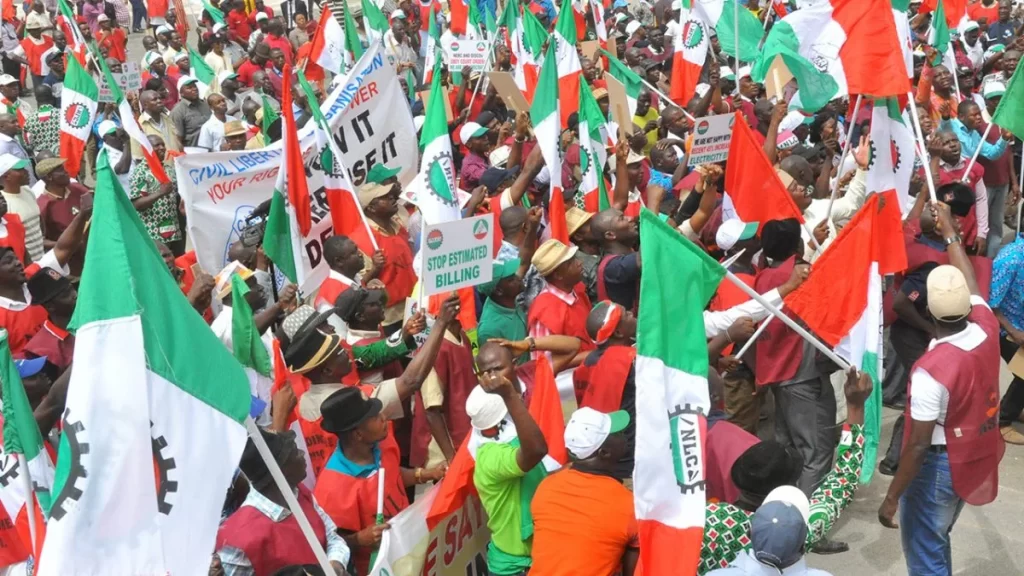The Nigeria Labour Congress (NLC) has warned that the recently approved ₦70,000 national minimum wage has already been eroded by inflation and soaring living costs, insisting that Nigerian workers can no longer survive on it.
The demand comes barely a year after President Bola Tinubu signed the new wage law in July 2024, which raised the statutory base pay from ₦30,000 to ₦70,000 for workers across the federal, state, and private sectors.
But according to the NLC, the relentless increase in food prices, transportation costs, rent, and electricity tariffs has rendered the new wage “grossly inadequate.”
Speaking in an interview with the News Agency of Nigeria (NAN), the NLC’s Acting General Secretary, Benson Upah, said:
“The truth is that ₦70,000 is not sustainable under the present economic situation. Workers are under immense pressure, and unless the government responds quickly, the crisis of survival will only worsen.”
Upah stressed that while the union is committed to dialogue, industrial action remains an option if the Federal Government refuses to act.
The warning comes on the heels of fresh wage reviews by some state governments. On August 27, Governor Hope Uzodimma of Imo State announced a ₦104,000 minimum wage for workers, the highest in the country so far, with corresponding adjustments across salary structures.
Other states — including Lagos, Rivers, Bayelsa, Enugu, Niger, Akwa Ibom, Ogun, Delta, Benue, Osun, and Ondo — have also reviewed their pay scales upwards, with Lagos targeting ₦100,000 in 2025.
Labour leaders argue that these upward reviews by states are a clear indication that the federal benchmark is already outdated.
The Association of Senior Civil Servants of Nigeria (ASCSN) has also backed calls for wage restructuring. Its president, Shehu Mohammed, described the moves by states as “eye-openers” for the federal government.
He recalled that during the wage negotiation in 2024, labour had submitted ₦250,000 as a benchmark for a living wage, but government settled for ₦70,000.
“Let’s be realistic. Even if you pay electricity bills out of ₦70,000, what remains cannot sustain a family for 10 days,” Mohammed lamented.
He also urged the government to pair wage increases with policies that address housing deficits, high healthcare costs, and lack of affordable transportation.
Several federal workers who spoke to NAN expressed similar frustrations, noting that survival under current economic realities has become “a daily struggle.”
Latest data from the National Bureau of Statistics (NBS) shows Nigeria’s inflation stood at 33.9% in July 2025 — with food inflation peaking at over 41%, one of the highest in Africa (See NBS report here).
For many workers, the minimum wage has already lost its purchasing power, fuelling fears of renewed labour unrest.
Do you want to share a story with us? Do you want to advertise with us? Do you need publicity for a product, service, or event? Contact us on WhatsApp +2348183319097 Email: platformtimes@gmail.com
We are committed to impactful investigative journalism for human interest and social justice. Your donation will help us tell more stories. Kindly donate any amount HERE




